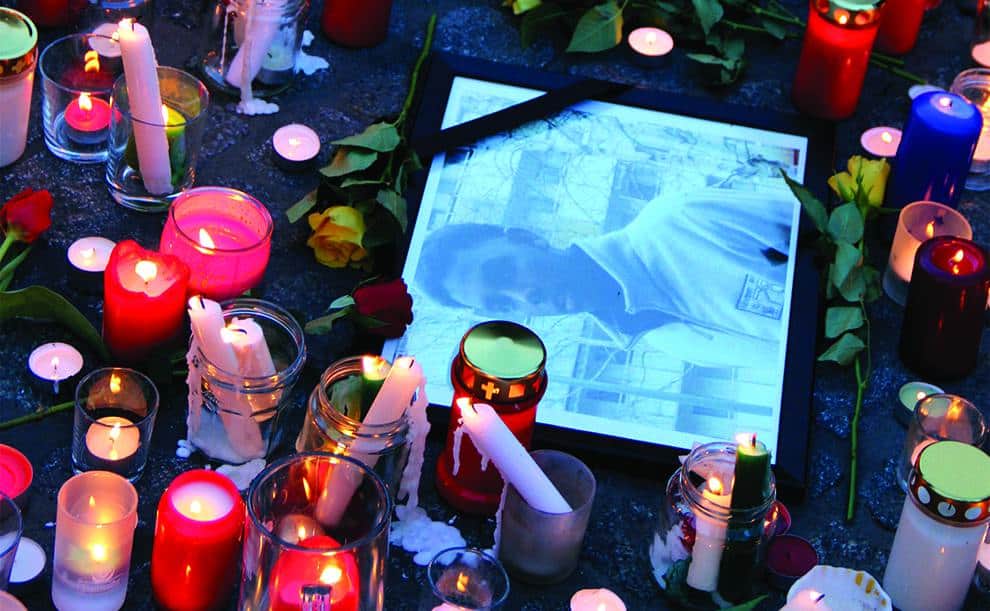Proaction over reaction

author: nick giokas | contributor

Credit: strassenstriche.net via flickr
“I know it may seem immoral to sit down and talk to radicals and hateful people, but I’m not concerned with the raw morality of listening to a Nazi or a Jihadist…”
If you watch the news at all these days, there seems to be only two kinds of stories: those of radical Muslims and extremist Nativists going out and committing acts of violence. The issue with these kinds of events and actions taken by these people is that we don’t have a working response. What needs to be established is the fact that the public, the politicians, and the media far too often fall back to reacting to violence and hate with short-term emotional response rather than looking at the broader picture. It’s a frustrating fact that the natural response is to hunker down and lash out, but lashing out doesn’t fix anything. The fact of the matter is that all the studies show that community engagement and softer diplomacy over long periods of time can stop people from going down the path of radicalism. Ask someone on the left about how to stop Muslims from being radicalized and they’ll say that you need to engage with the Muslim community. Ask someone on the right about the far-right extremists and you’ll get a similar line of thinking. However, ask the left about the far right or the right about radical Islam and the response you get is one advocating for an iron fist.
Cognitive dissonance is a cancer upon political discourse, and on the subject of radicalisation, we’ve let it fester for far too long. Radicalization is a social process that doesn’t care about race, gender, or any other sub-grouping; however, when we talk about hate crimes and terrorism, both the left and right regularly refuse to accept this as a fact. Both sides “other” the radicals they disagree strongly with and refuse to empathise. What does this do to stop hate crimes and terrorism? Absolutely nothing. When viewed through the more universal lens by considering that these acts are merely an extreme form of crime, we ought to arrive at the conclusion that by sticking to laws and prison sentences alone, we won’t root out the problem. Hate crimes and terrorism aren’t irrational criminal actions; they’re motivated by cost/benefit analysis. Therefore, you stop these crimes by changing these people’s evaluation, not by merely criminalizing the act.
It seems counterintuitive, but it’s the facts. How do you stop people who are confused and concerned by the changing nature of society and due to social isolation begin being influenced by terrible groups and ideas? You engage with them. The proportion of the population who are sociopaths is fairly low. Therefore, most of the people with abhorrent views are people that have fallen into a warped worldview. The only way to stop hate crimes is to change these people’s thinking. I guess my big assumption is that the main objective for us is to stop this violence and hate.
Obviously, it’d be easy to think otherwise. The response by most people seems to always be to do what makes them feel good: getting angry, using insults, being harsh. It feels good to you, but it does nothing to solve the problem. Once again, turning back to the universals, people will entrench their views if they feel slighted or cornered which as proven before is the exact opposite of what we want to do. So, we as a populace need to stop being concerned with what makes us feel good and focus on what we want to accomplish. Personally, I’d like to see less hate and violence. I know it may seem immoral to sit down and talk to radicals and hateful people, but I’m not concerned with the raw morality of listening to a Nazi or a Jihadist, I’m far more concerned with whether or not we can build a circumstance where those on the path to radicalisation feel and know that there is an off-ramp. The more we stick to iron fists, the more likely it is that those that are prone to radical views will go down that path.
However, it also needs to be said that we still need to have criminal consequences for violence, but if we engage with people, show empathy to those who refuse to do the same, and build opportunities to save those who are in danger of being radicalized, we won’t need to be as reliant on criminal proceedings. You can’t outlaw thoughts and you can’t shout away ideology. The only thing you can do is convince people. So, let’s stop being reactive and be more proactive, it has far better results.








